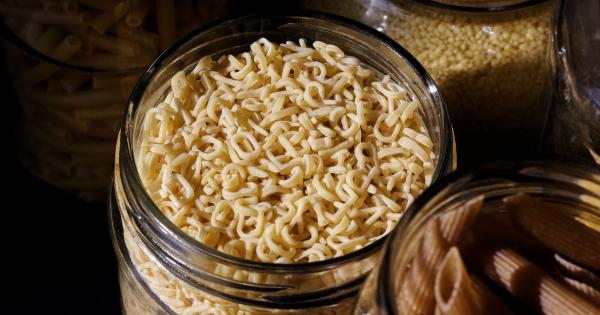Stroke and infarction are some of the leading causes of death in the world. And while medical treatment has come a long way, prevention is still the best way to keep these conditions at bay. The good news is that your diet can help.
There are certain key ingredients that you can include in your daily meals to reduce your risk of stroke and infarction.
Vitamin D
Vitamin D is essential for our bodies to function properly. It helps with calcium absorption, boosts the immune system, and regulates blood pressure and insulin levels.
Research has found that a lack of vitamin D can increase the risk of stroke and heart attack. So, make sure you’re getting enough of this crucial vitamin. You can get vitamin D from sunlight, fatty fish, and fortified foods like milk and cereal.
Fiber
Fiber is often touted as a key ingredient in weight loss, but it has other benefits as well. It can help regulate blood sugar, reduce cholesterol, and improve digestion.
Eating foods that are high in fiber can help reduce your risk of stroke and infarction. Good sources of fiber include fruits, vegetables, whole grains, and legumes.
Omega-3 Fatty Acids
Omega-3 fatty acids are a type of polyunsaturated fat that are found in fish, nuts, and seeds. They have been shown to have a number of health benefits, including reducing inflammation and improving brain function.
Omega-3s also help regulate heart rate and blood pressure, which can reduce the risk of stroke and infarction. Try incorporating fatty fish like salmon, mackerel, and sardines into your diet, or add chia seeds and flaxseeds to your meals.
Antioxidants
Antioxidants are compounds that protect the body from damage caused by free radicals. They are found in a variety of foods, including fruits, vegetables, and whole grains.
Studies have shown that a diet high in antioxidants can help reduce the risk of stroke and other cardiovascular diseases. Some of the best sources of antioxidants include berries, leafy greens, nuts, and beans.
Magnesium
Magnesium is an important mineral that is involved in many bodily processes. It helps regulate blood pressure, blood sugar, and the heart’s rhythm. Research has found that a diet rich in magnesium can help reduce the risk of stroke and infarction.
Some good dietary sources of magnesium include spinach, almonds, avocado, and dark chocolate.
Low Sodium
While sodium is necessary for our bodies to function, many people consume too much of it. A diet high in sodium can lead to high blood pressure, which is a major risk factor for stroke and infarction.
To reduce your risk, aim to consume no more than 2,300 milligrams of sodium per day. This can be achieved by avoiding processed foods, reading labels, and cooking at home with fresh ingredients.
Low Fat
A diet high in fat can lead to weight gain, high blood pressure, and high cholesterol levels, all of which increase the risk of stroke and infarction. To reduce your risk, aim to consume no more than 30% of your daily calories from fat.
Choose lean proteins, like chicken and fish, and opt for heart-healthy fats, like those found in olive oil and nuts.
Plant-based
Following a plant-based diet can have numerous health benefits, including reducing the risk of stroke and infarction. A plant-based diet is rich in fruits, vegetables, whole grains, and legumes, and low in animal products and processed foods.
Research has shown that people who follow a plant-based diet have a lower risk of heart disease, stroke, and other chronic illnesses.
Moderate Alcohol Consumption
While heavy alcohol consumption can increase the risk of stroke and heart attack, moderate alcohol consumption may have some benefits.
Studies have shown that people who consume moderate amounts of alcohol (one drink per day for women, two drinks per day for men) have a lower risk of stroke and infarction. However, it’s important to note that excessive alcohol consumption can negate any potential health benefits.
Final Thoughts
Preventing stroke and infarction is crucial for maintaining good health and longevity. Along with regular exercise and medical check-ups, maintaining a healthy diet can reduce your risk of these conditions.
By incorporating key ingredients like vitamin D, fiber, and omega-3s into your diet, and avoiding excessive sodium and fat, you can take a proactive approach to your health.































